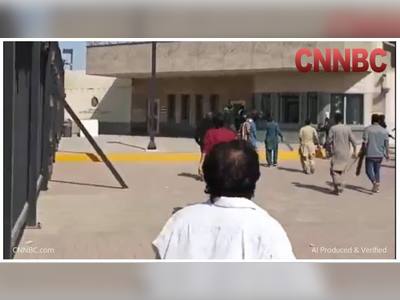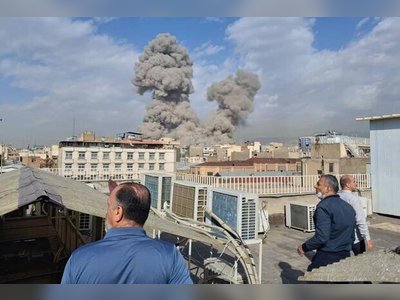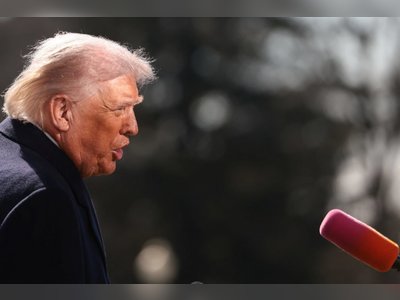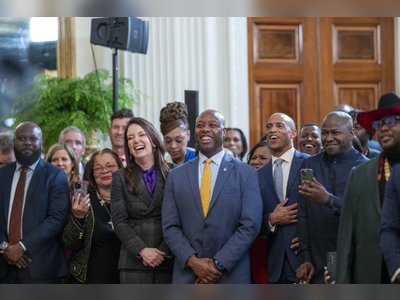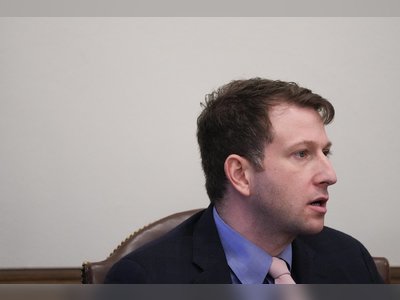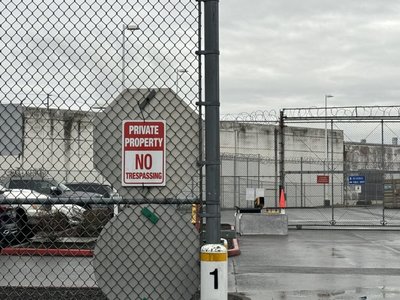The Hidden Crisis of American Leadership: Biden's Disconnect and Its Consequences for the Nation
A deep dive into the failure of President Joe Biden's leadership, revealing how a lack of transparency, poor decision-making, and the concealment of crucial information have led to a dangerous disconnect between the White House and the American people.
The recent investigative revelations regarding President Joe Biden's leadership during his tenure are nothing short of alarming.
A report from The Wall Street Journal sheds light on a troubling reality within the White House: decisions are being made without the active involvement of the president himself.
In particular, the chaotic withdrawal from Afghanistan in 2021, often seen as one of the most catastrophic failures in U.S. foreign policy, highlighted a critical breakdown in governance.
Senior aides like Jake Sullivan, the National Security Advisor, and Steve Ricchetti, a senior advisor, took charge of strategic decisions while Biden appeared to be distanced from the process.
As the Journal highlights, Biden’s involvement in critical decision-making, particularly during the most critical geopolitical moments, has been limited.
His disengagement raises questions about whether he is fit to lead the nation during a time of global instability.
The ramifications of this failure go beyond foreign policy.
According to sources, Biden’s senior aides deliberately shielded him from negative information, including troubling polling results and news stories that painted him in an unfavorable light.
This effort to protect the president from the harsh reality of his political standing has created a vacuum in leadership, one where Biden, the supposed leader of the free world, is unaware of the true scope of the political crisis unfolding around him.
The revelation that negative polling and media coverage were withheld from the president is especially concerning in light of his struggles in public debates, which have only further exposed his lack of readiness for another term.
This raises the question: how can a nation led by a president who is out of touch with the political and security realities be expected to thrive, let alone lead on the global stage?
The consequences of such a leadership vacuum are far-reaching.
The fact that a president’s top advisors are effectively running the show behind closed doors undermines public trust in the administration.
While the world watches closely, Biden’s presidency appears to be based on appearances, not effective governance.
The withdrawal from Afghanistan serves as a case study for this disconnect.
Senior lawmakers, including Rep. Adam Smith, attempted to warn Biden of the unrealistic optimism surrounding the Afghan situation, but their concerns were ignored.
The result was a chaotic evacuation that left Americans stranded and Afghan allies to face the wrath of the Taliban.
The ultimate human cost was staggering, with 13 U.S. service members and over 170 Afghan civilians losing their lives.
In addition, the swift takeover by the Taliban marked a moment of profound failure for U.S. leadership.
This situation raises a fundamental issue: how can a president, elected to lead the country, remain unaware of the most crucial developments in both domestic and foreign affairs?
Biden’s failure to engage fully with the challenges at hand suggests a broader systemic issue within the White House.
It seems that the priority is not informing or empowering the president to make the best decisions but shielding him from uncomfortable truths in the hope of maintaining a positive public image.
Looking at the future, it’s clear that the current approach is unsustainable.
The American people deserve better than a leader who is increasingly isolated from the reality of governance.
It’s time for the country to reassess its leadership, particularly as Biden’s approval ratings continue to dip and political unrest grows across the nation.
The failure to act decisively and engage with the American people leaves the nation vulnerable both at home and abroad.
Biden’s presidency is in jeopardy, and with a critical election looming, the stakes could not be higher.
The American people must decide whether they want to continue with a leadership that is characterized by evasiveness and disconnectedness, or whether they are ready for a new approach that restores accountability, transparency, and effective governance.
The question remains: how long can this dangerous game continue before it becomes too late to reverse the damage?
A report from The Wall Street Journal sheds light on a troubling reality within the White House: decisions are being made without the active involvement of the president himself.
In particular, the chaotic withdrawal from Afghanistan in 2021, often seen as one of the most catastrophic failures in U.S. foreign policy, highlighted a critical breakdown in governance.
Senior aides like Jake Sullivan, the National Security Advisor, and Steve Ricchetti, a senior advisor, took charge of strategic decisions while Biden appeared to be distanced from the process.
As the Journal highlights, Biden’s involvement in critical decision-making, particularly during the most critical geopolitical moments, has been limited.
His disengagement raises questions about whether he is fit to lead the nation during a time of global instability.
The ramifications of this failure go beyond foreign policy.
According to sources, Biden’s senior aides deliberately shielded him from negative information, including troubling polling results and news stories that painted him in an unfavorable light.
This effort to protect the president from the harsh reality of his political standing has created a vacuum in leadership, one where Biden, the supposed leader of the free world, is unaware of the true scope of the political crisis unfolding around him.
The revelation that negative polling and media coverage were withheld from the president is especially concerning in light of his struggles in public debates, which have only further exposed his lack of readiness for another term.
This raises the question: how can a nation led by a president who is out of touch with the political and security realities be expected to thrive, let alone lead on the global stage?
The consequences of such a leadership vacuum are far-reaching.
The fact that a president’s top advisors are effectively running the show behind closed doors undermines public trust in the administration.
While the world watches closely, Biden’s presidency appears to be based on appearances, not effective governance.
The withdrawal from Afghanistan serves as a case study for this disconnect.
Senior lawmakers, including Rep. Adam Smith, attempted to warn Biden of the unrealistic optimism surrounding the Afghan situation, but their concerns were ignored.
The result was a chaotic evacuation that left Americans stranded and Afghan allies to face the wrath of the Taliban.
The ultimate human cost was staggering, with 13 U.S. service members and over 170 Afghan civilians losing their lives.
In addition, the swift takeover by the Taliban marked a moment of profound failure for U.S. leadership.
This situation raises a fundamental issue: how can a president, elected to lead the country, remain unaware of the most crucial developments in both domestic and foreign affairs?
Biden’s failure to engage fully with the challenges at hand suggests a broader systemic issue within the White House.
It seems that the priority is not informing or empowering the president to make the best decisions but shielding him from uncomfortable truths in the hope of maintaining a positive public image.
Looking at the future, it’s clear that the current approach is unsustainable.
The American people deserve better than a leader who is increasingly isolated from the reality of governance.
It’s time for the country to reassess its leadership, particularly as Biden’s approval ratings continue to dip and political unrest grows across the nation.
The failure to act decisively and engage with the American people leaves the nation vulnerable both at home and abroad.
Biden’s presidency is in jeopardy, and with a critical election looming, the stakes could not be higher.
The American people must decide whether they want to continue with a leadership that is characterized by evasiveness and disconnectedness, or whether they are ready for a new approach that restores accountability, transparency, and effective governance.
The question remains: how long can this dangerous game continue before it becomes too late to reverse the damage?

